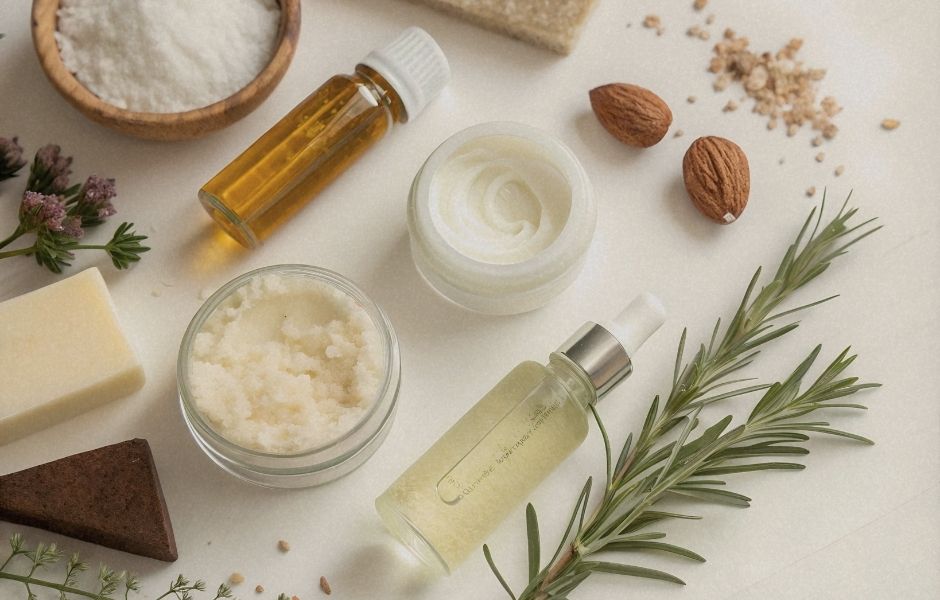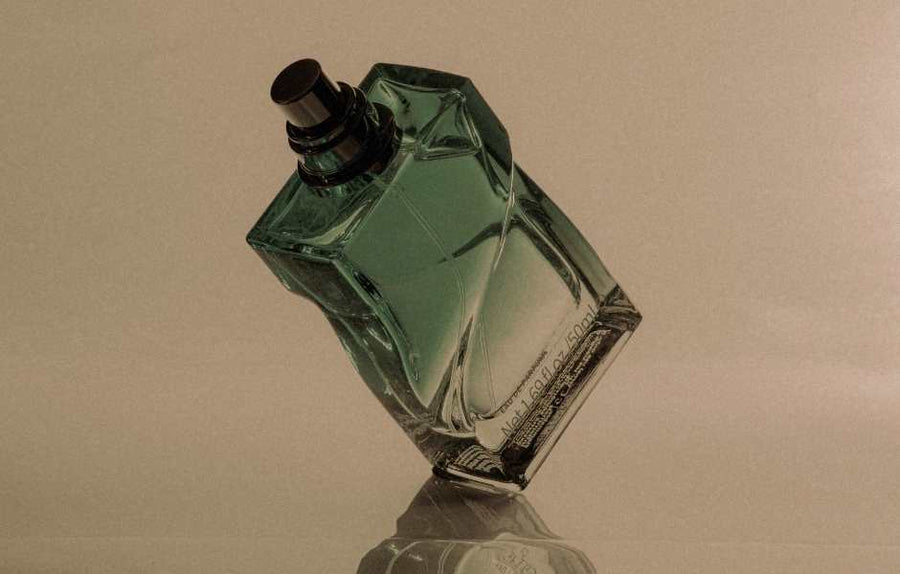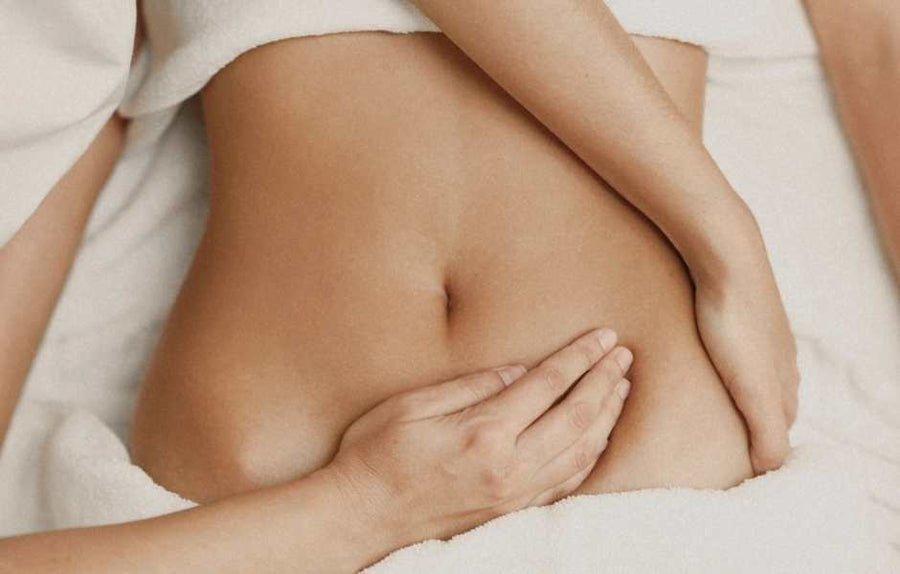If you're trying to conceive or preparing for IVF, you've probably found yourself staring at ingredient labels like you're decoding a secret language. From deodorant to supplements, bubble bath to toilet paper, suddenly everything you put in or on your body feels like it matters. Because it does.
But here’s the tricky part: fertility safety isn’t well-regulated, and terms like “natural,” “clean,” or “non-toxic” don’t actually mean anything without deeper scrutiny. At The Aspyn, we believe you deserve full transparency, especially during such a sensitive, sacred chapter of your life.
What really makes a product feel safer for your fertility journey? What ingredients might you want to skip? And how can you shop with more clarity and confidence when choosing products that align with your reproductive wellness goals?
Why Fertility-Safe Products Matter
Your reproductive system is especially sensitive to what's known as endocrine-disrupting chemicals (EDCs). These are ingredients that interfere with hormone function. They are found in countless personal care products, cleaning supplies, plastics, and even toilet paper.
🧪 The American College of Obstetricians and Gynecologists (ACOG) and the Endocrine Society both warn that EDCs like BPA, phthalates, and parabens may negatively impact reproductive health, including ovulation, egg quality, and hormone regulation.
When you're trying to conceive, especially with the added complexity of IVF or hormone treatments, it’s essential to reduce the "toxic load" on your body. That doesn’t mean living in fear or chasing perfection. It means protecting your body’s natural rhythm by making informed, gentle swaps.
The Biggest Ingredient Offenders to Watch Out For
Here are some common ingredients in personal care and household products that are linked to fertility disruption:
Synthetic Fragrance
"Fragrance" is considered proprietary, so companies don’t have to disclose the potentially dozens of chemical compounds within it. Safer options: fragrance-free or scented only with fertility-safe essential oils in low dilution.
Phthalates
Often hidden in “fragrance,” phthalates are known to disrupt estrogen and testosterone balance.
🧪 A 2019 study in Environmental Research linked phthalate exposure to lower AMH levels and an increased risk of anovulation in women.
Parabens
These common preservatives can mimic estrogen and potentially interfere with ovarian function.
🧪 The Journal of Assistive Reproduction and Genetics (2014) found urinary parabens correlated with reduced antral follicle count (AFC), a marker of ovarian reserve.
BPA (Bisphenol A)
Found in plastics and receipts; associated with hormonal disruption and egg quality decline.
🧪 BPA has been linked to impaired embryo implantation and lower IVF success rates in a 2013 study published in Fertility and Sterility.
Triclosan
An antibacterial chemical that can alter thyroid and sex hormones.
🧪 According to the NIH, triclosan exposure has been associated with decreased thyroid hormone levels in both animal and human studies.
Sodium Lauryl Sulfate (SLS)
A foaming agent that can irritate sensitive skin, disrupt vaginal pH, and impact microbiome balance, all critical for conception.
🧪 Disruptions to the vaginal microbiome are increasingly recognized as a contributing factor to infertility, according to a 2020 review in Frontiers in Cellular and Infection Microbiology.
Certain Essential Oils
Some oils, like clary sage, Fennel, Pennyroyal, Wintergreen Juniper Berry, and mugwort may interfere with hormonal balance if used excessively or during key cycle phases.
🧪 Animal and in-vitro studies suggest that certain essential oils can act as phytoestrogens or hormone modulators (NTP, 2021).
Fertility-Safe Doesn’t Have to Mean Complicated
The goal isn’t to overhaul your life overnight. It’s to be intentional. Start with products you use daily and directly on your skin, like:
-
Moisturizer – Choose formulas without parabens, synthetic fragrance, or chemical preservatives — your skin absorbs more than you think, especially with daily use.
-
Deodorant – Skip aluminum, baking soda, and synthetic fragrance — because your lymph nodes and breast tissue are too important to ignore.
-
Lip balm – If you wouldn’t eat it, don’t put it on your lips. Look for organic oils and butters only.
-
Body wash & soap – Choose unscented or gentle essential oil–based options.
-
Prenatal supplements – Look for third-party testing, methylated folate, and no synthetic dyes or titanium dioxide.
-
Toilet paper – Yes, really. Some mainstream brands use chlorine bleach or fragrance.
Clean Doesn’t Mean Sterile — It Means Conscious
Being "clean" isn’t about being sterile or sanitized, it’s about conscious curation. At The Aspyn, every product is selected not just for what it does, but for what it doesn’t contain.
We ask:
-
Is this gentle on the body’s natural balance?
-
Is it free of known fertility disruptors?
-
Does it support someone emotionally and physically?
Because wellness isn't just skin deep. It's cellular, hormonal, and deeply personal.
Give Yourself Grace (Not Guilt)
You do not need to throw away your entire bathroom cabinet or spiral over every product. Fertility-safe living is a process and one that should feel empowering, not overwhelming.
Start with small swaps. Ask questions. And if you’re not ready to change everything at once, that’s okay. Even something as simple as setting aside synthetic fragrances for a while in your perfumes, lotions, or candles, can be a meaningful step toward supporting your hormonal balance.
Know that by choosing products that honor your hormones and your health, you’re already doing something beautiful for your future self.





